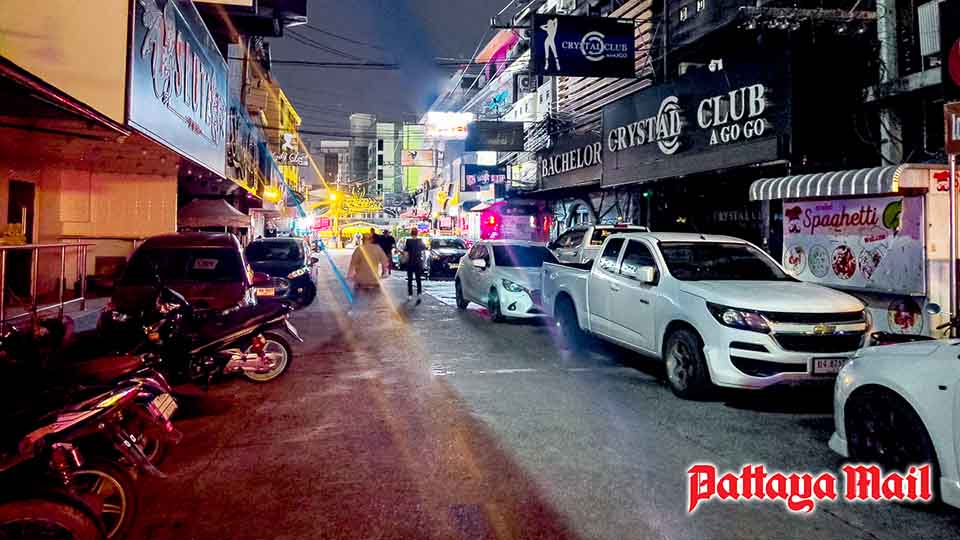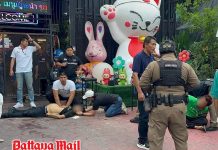
Restaurants can sell until 9 p.m.; Nightlife, Test & Go remain suspended
Thailand’s major tourist areas avoided a total ban on alcohol sales in restaurants, although starting Sunday Jan. 9, the Center for Covid-19 Situation Administration shortened sales hours to end at 9 p.m.
The Public Health Ministry had pressured the CCSA to halt alcohol sales again with Dr. Opas Karnkawinpong, director-general of the ministry’s Disease Control Department, telling the media late Thursday the CCSA would halt restaurant-booze sales in “orange” and “red” coronavirus-control zones.
Not only did the CCSA on Friday only lop two hours off the existing alcohol-sales hours, stopping them at 9 p.m., but the health panel didn’t designate any province as a red zone. All the country is now orange – a moderate control zone – with the exception of the “blue” tourism-pilot zones.
The blue zones are Bangkok, Chonburi, Chiang Mai, Kanchanaburi, Krabi, Nonthaburi, Pathum Thani, Phangnga, and Phuket.
Alcohol sales are now forbidden in orange zone restaurants.
Nightlife reopening delayed
As expected, the CCSA also postponed the official reopening of bars, clubs and other large nightlife venues, although the majority of bars already have reopened as pseudo-restaurants.
Those bar-cum-restaurants have been identified as the source of the latest Covid-19 outbreak, which is increasingly being driven by the omicron coronavirus variant.
The Sukhumvit Soi 7 beer bar complex in Bangkok has been traced to more than 50 infections and Pattaya’s Tree Town market has every day this year seen 10-25% positivity rates in Covid-19 testing done at the Soi Buakhao bar area.
Test & Go: still suspended, no cutoff date
Also postponed, as expected, was the resumption of the misleadingly named “Test & Go” tourist-entry scheme, allowing fully vaccinated foreign tourists to enter Thailand with only one night of quarantine and an on-arrival RT-PCR coronavirus test.
Test & Go is suspended indefinitely, although tourists with already approved Thailand Pass QR codes can still enter the country for now. The CCSA rejected the Public Health Ministry’s request to cut off Thailand Pass arrivals on Jan. 15.
The CCSA said it would keep travelers informed if a cutoff date is decided. Otherwise, arrivals face no changes to requirements other than taking an additional, free PCR test.
The CCSA said 10,440 Thailand Pass holders are expected to arrive in Thailand from Jan. 7-15; 4,900 from Jan. 16-31; 3,757 in February and 468 in March. Those numbers were nearly four times less than the number of passes approved, but many people canceled their trips after Test & Go was suspended.
‘Sandbox’ provinces added
That leaves only two options for travelers looking to holiday or return to Thailand: Alternative quarantine hotels or “sandboxes”, which allow people to leave their hotels but remain in specified geographic areas.
Currently only Phuket – an easily controlled island – is a sandbox. But starting Jan. 11, islands Koh Samui, Koh Phangan, Koh Tao, Phangnga and Krabi will be reinstated as sandboxes.
That development will bitterly disappoint officials in Pattaya, which have pushed for Chonburi’s Banglamung and Sattahip districts to be reinstated as sandboxes. But Chonburi, with more new Covid-19 cases than any province in Thailand, has not done itself any favors with the national health officials. They see Pattaya’s lax enforcement of restaurants as a major reason for the new outbreak.
Chonburi on Friday reported 1,342 new Covid-19 cases, a whopping 712 of them in Banglamung, which includes Pattaya. The district has seen more than 2,000 new cases this week alone.
Nationally, official case counts doubled to a more-realistic 7,526 infections with 19 deaths. Confirmed cases finally outnumber suspected cases from antigen tests, as the past two weeks have seen widespread reports of Covid-19 infections found through home rapid tests without them showing up in official numbers.
One group of travelers who will be pleased with the CCSA’s meeting will be residents of eight African countries from where the omicron variant sprang. The total ban on arrivals from those nations can again come to Thailand starting Jan. 11 but must stay seven days in an alternative quarantine hotel without leaving.
 |
 |
 |
The original version of this story appears in the Bangkok Herald, a Pattaya Mail partner.





